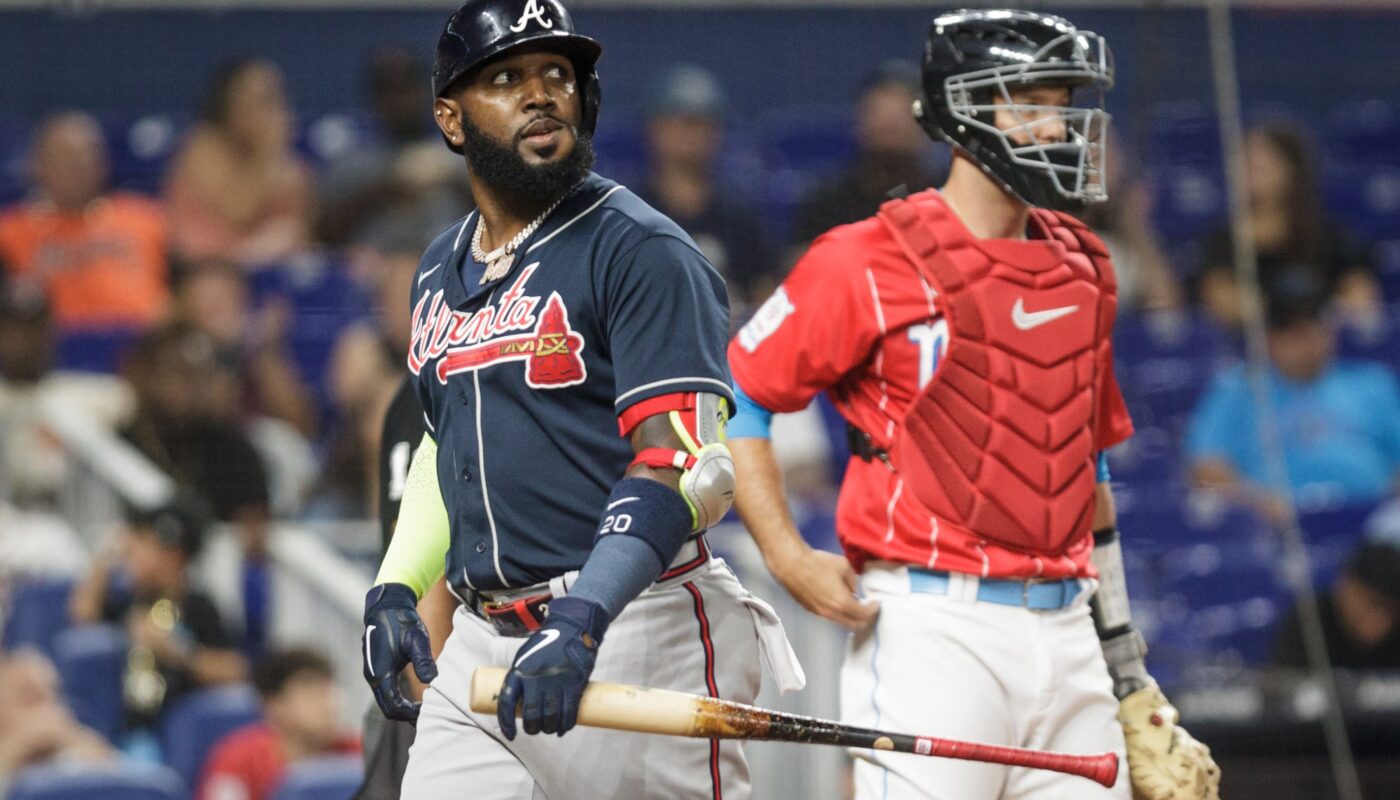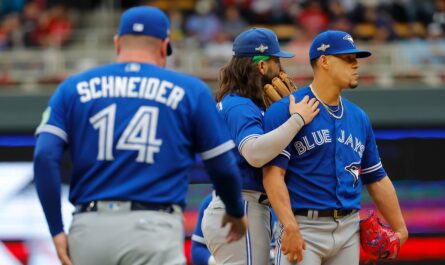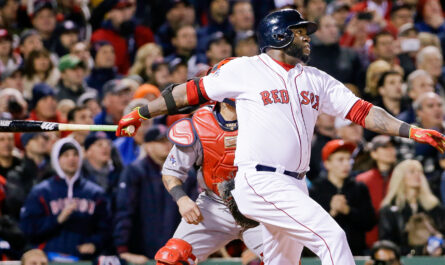Marcell Ozuna, typically known for his on field talents has become a rather prominent figure in Major League Baseball. However, behind the allure of his professional career lies a dark history filled with controversies that have raised questions about both his character and how the league has handled his conduct.
In May of 2021 reports began to surface regarding an altercation between Ozuna and his spouse which resulted in charges of aggravated assault by strangulation. In his arrest record responding officers stated they had witnessed Ozuna in a physical altercation culminating in him placing his hands around his spouses neck. Body cam footage would ultimately confirm this allegation and he was sentenced under a pretrial agreement. These terms included three to six months of supervision, completion of a 24-week family violence intervention program, anger management and 100 hours of community service. Despite the circumstances these charges would ultimately be dropped by his spouse.
The commissioners office of Major League Baseball would immediately launch their own investigation of the incident, resulting in a 20 game suspension. While this decision created quite a bit of a commotion across social media channels, much of the mainstream media was relatively quiet on the matter aside from reporting on the leagues decision. It can only be assumed this may have been an effort to avert controversy and maintain the leagues image. Ozuna who was on administrative leave, served his suspension retroactive to September 10th covering the final 24 days of the regular season. This allowed him to be eligible to return opening day of the following season.
Only a year after his domestic incident, Ozuna would once again find himself facing legal trouble. This time after a DUI arrest following a game on August 19th, 2021. According to the Norcross Police officer in the Atlanta metro area, Ozuna who was operating his Mercedes Benz SUV was both speeding and unable to maintain his lane. As the officer approached the vehicle Ozuna greeted him with his MLB player card on top of his drivers license and stating the now infamous line “I’m Ozuna from the Braves”. From the released body cam footage of the incident he attempts to apologize and dismiss the incident with a handshake to no avail.
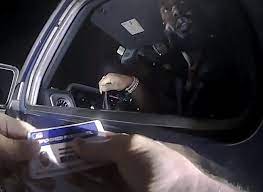
This incident resulted in a plea of no contest and a $1,000 municipal fine but Ozuna faced no formal penalties from the league office or the organization. For clarity, MLB does not at present have a formal DUI suspension policy. While Ozuna faced a relatively lenient consequence for his second offense his actions didn’t come without repercussion from the fan base.
As articles and video clips from his arrest began circulating many fans took to social media to criticize and poke fun at his interaction. Even the home broadcast booth addressed him as “Ozuna from the Braves” during his first game back after the incident. Fortunately for Ozuna, the criticism eventually passed and as of 2023 is rarely addressed.
A Conspiracy…?
So the question remains, how did Ozuna avoid a reasonable suspension for his off field actions? Well that’s where these decisions and the individuals behind them become a bit murky. This is because much of what the league’s office does during these investigations, happens behind closed doors. And while I can understand a rational request for privacy, I also understand how this can allow for unbounded power from the commissioners office. So not to spark conspiracies, but when the doors are shut what factors are at play when these decision are made? Is there a third party arbiter, can organizations build a case for their players, or are these decisions made solely to mitigate financial risk? These are all valid questions. But what happens when there’s no established benchmark and these suspensions stop making sense?
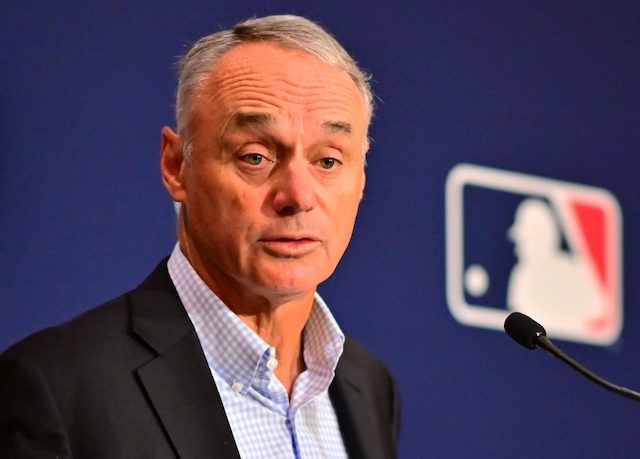
Well, doing some research into the history of MLB’s domestic violence policy will give you a pretty wide range of data. Though this policy was enacted in August of 2015, domestic related suspensions have been handed out going back as early as 1997. Since that time, player suspensions have ranged from as few as 8 games to as many as the 324 games issued to Trevor Bauer in April of 2022. Now you would think under the premise of violence there would be an absolute zero tolerance for these types of actions but the data says something different, and that’s the root of the issue.
You see, I don’t believe there is a fair and just system for today’s ballplayers and furthermore the MLBPA (MLB Players Association) seems to have done little to stand with the members of their union under investigation. One can easily make the case that Ozuna’s suspension was quite laughable and compare details of his case with others of a similar degree, but that doesn’t solve the issue. Moreover, there are circumstances outside the parameters of domestic issues that would warrant response from the league but many get wept under the rug.
The Marcell Ozuna case is important because it shows the system is broken system. If the MLB wants to hold their players and it’s organizations to a higher standard there needs to be a hardline stance. For example, if Ozuna had tested positive for PEDs (performance enhancing drugs) he would have faced an 80 game suspension with no questions asked. But because there is no defined standard he ultimately served a suspension of 20 games for two separate arrest.
A Proposed Solution
The MLB holds a fiduciary responsibility to keep both players and organizations accountable for their actions on and off the field. This means establishing a baseline and maintaining its integrity. To do this, MLB must create a system of governance that allows players and organizations to build a case in their defense, but also hold organizations and players fully accountable. We need to remember these individuals are members of their community and if they criminally violate local ordinances they need to be held responsible.
My proposal is for the league to adopt a code of community ethics and set a benchmark for accountability. Under this proposal individuals who are arrested regardless of crime are placed on a 80 game suspension unless the MLB, the MLBPA and a 3rd party arbiter collectively decide otherwise. This allows for some variability depending on the severity of their crime. Players will also have an appeals process and the ability to build a case in their defense.
Should the issue be a non-criminal allegation, the MLB will need to employ a board of 3rd party arbiters to make a majority decision base solely on evidence. These suspensions will also start at minimum of 80 games but can be extended with a majority vote of the board.
There are obviously additional details that would need to be worked out, but this creates a strong beachline and deterrent for players and individuals who commit crimes off the field. With this code of ethics enacted we can fix baseball’s suspension problem and deter future conduct issues.

